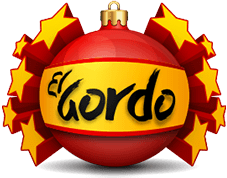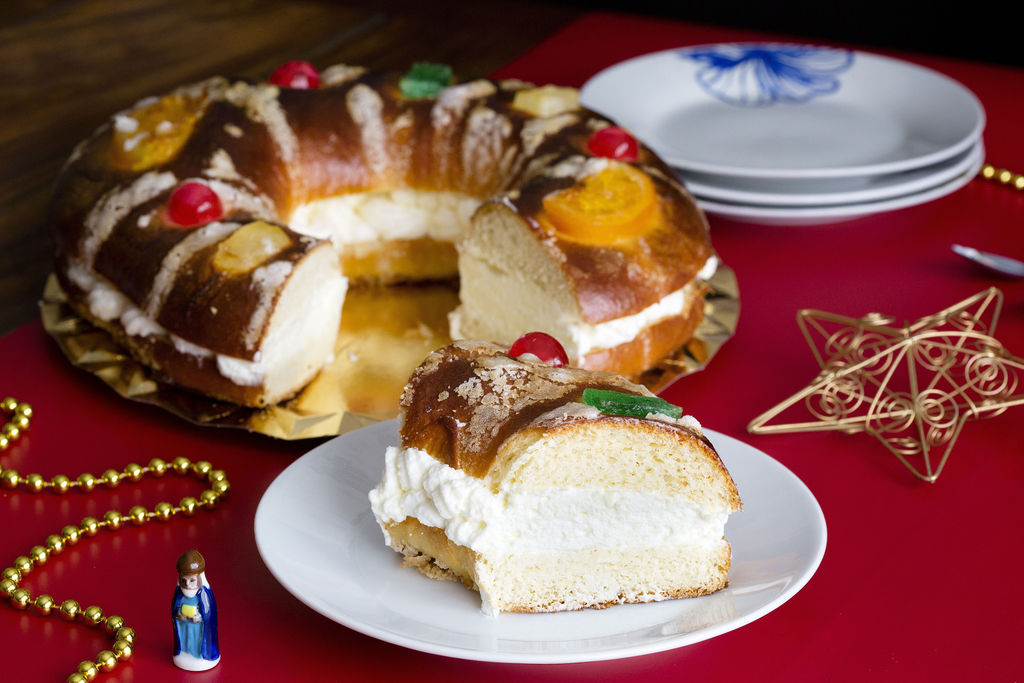 Christmas and New Year
Christmas and New Year
In Spain Christmas begins on December 22, "the day of the lottery." It is a day of great enthusiasm because almost all Spaniards play some numbers and they wait with impatience the exit of "gordo", that is how the first prize of the Christmas lottery is known.
December 24 is Christmas Eve: The family gathers around the table, prepared to dine on seafood, fish, meat, sweets ... The most typical Christmas sweets are nougat, marzipan and polvorones, which are placed in a few dishes to offer to visitors. After dinner they sing Christmas carols and talk. The most religious families usually attend the "Misa del Gallo".
The 25th is Christmas Day: It is celebrated with a special meal, as on Christmas Eve. After it is served with cava and you spend the day with the family.
December 28th is the day known as Santos Inocentes (Innocent Saints). That is the official day of jokes. False news is reported in newspapers and on television. It is a very fun day.
 The night of the 31st is New Year's Eve: Dinner that day is very popular, but not as familiar as Christmas Eve. Many people wear red underwear, because they believe that they will be lucky during the coming year. People usually watch television, because at a quarter to twelve it connects with the Puerta del Sol in Madrid; there is the clock that is going to give the twelve bells announcing the New Year. With each stroke, a grape is eaten and when finished it is served with cava. Afterwards the family and friends usually hold a party that lasts all night, until it begins to dawn: then they have a hot chocolate drink with churros.
The night of the 31st is New Year's Eve: Dinner that day is very popular, but not as familiar as Christmas Eve. Many people wear red underwear, because they believe that they will be lucky during the coming year. People usually watch television, because at a quarter to twelve it connects with the Puerta del Sol in Madrid; there is the clock that is going to give the twelve bells announcing the New Year. With each stroke, a grape is eaten and when finished it is served with cava. Afterwards the family and friends usually hold a party that lasts all night, until it begins to dawn: then they have a hot chocolate drink with churros.
January 1st is New Year. Families usually gather to eat, but almost everyone has a hangover, because on New Year's Eve they drink a lot.
On the 5th: At night the Three Wise Men arrive. It is time for the children's party and days before they write a letter telling them what they would most like as a gift. Overnight to the morning of the 6th the Kings have left all their gifts. That day you have breakfast with the Roscón de Reyes, a sweet that has a small gift inside.
Christmas Presents - Regalos Típicos
Spanish tradition has it that the Three Kings, los Reyes Magos, are the ones who on the morning of January 6th, el Día de Reyes, bear presents for all the children, repeating the ritual they performed after baby Jesus was born. Influenced by American films and TV shows, some families have decided to switch to Papá Noel on Christmas Day, arguing that this allows the kids more time to play with their toys as Spanish children usually return to school on the 7th January.
Most Spanish people keep their fingers crossed for a Christmas windfall, courtesy of the world-renowned lottery draw, El Gordo, literally The Fat One. This is a long, drawn-out event that unfolds on the morning of December 22nd. Ticket numbers in a giant drum are matched to balls with millionaire prizes in a smaller drum. The ticketing system allows people to buy fractions and subfractions of different numbers, décimos and participaciones, with increasing chances of a share in the winnings.
As the top prizes come out, TV and radio coverage centres on the search for the many winners and for the particular lottery shop where the winning ticket was bought.
Food and Drink - Comidas y Bebidas
Christmas sweets are the main seasonal staple. El turrón, nougat, is essential. This almond-based tablet traditionally comes in two versions, duro, hard, with whole almonds in a paste of sugar, honey and egg white, or blando, soft, where the ingredients are ground together.
Las figuras de mazapán, marzipan figurines, are also popular, together with los polvorones, soft crumbly cakes made with lard, flour and cinammon.
The main meal takes place on Christmas Eve, la Nochebuena, and consists of a major dish of meat or seafood, such as cordero, lamb, bacalao, cod, or marisco, shellfish, which varies according to the region or the family's preferences.
The 'lucky grapes', las uvas de la suerte, are the law on New Year's Eve, la Nochevieja - literally 'Old Night'. A tradition introduced in the early 20th century, it's said to bring good luck if at each stroke of the bells at midnight you take one grape and make one wish, un deseo, for the New Year, el Año Nuevo.
Quirky Customs - Curiosidades
Celebrations stretch from December 22nd, when the big lottery draw takes place, to January 6th, when the presents are unwrapped. Then, between Christmas Eve and New Year's Eve, there's still time to fit in another celebration. The equivalent of April's Fools Day takes place in Spain on December 28th, el día de los Santos Inocentes, Holy Innocents' day.
Nativity scenes with figurines are laid out on a table at home, with no limit to their degree of elaboration. Life-size figures are also on display in public squares and there are silent, living representations in public halls.
But in Cataluña there's a surprising addition to the crib: el caganer, which means, for want of a more offensive translation, the defecating shepherd. What's more, this scatological streak extends to a peculiarly-shaped local cake, la tifa, with sugar flies to top it all off!